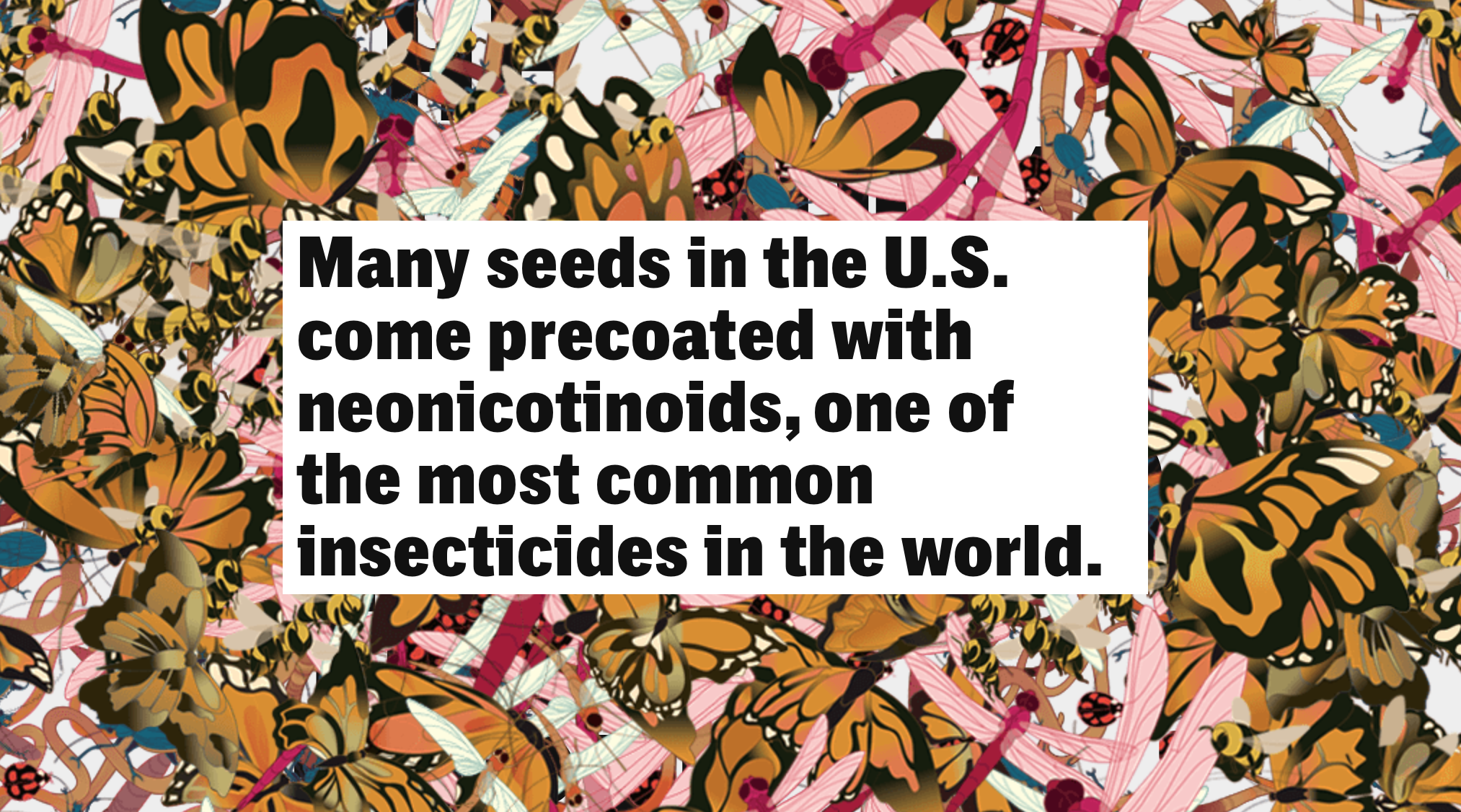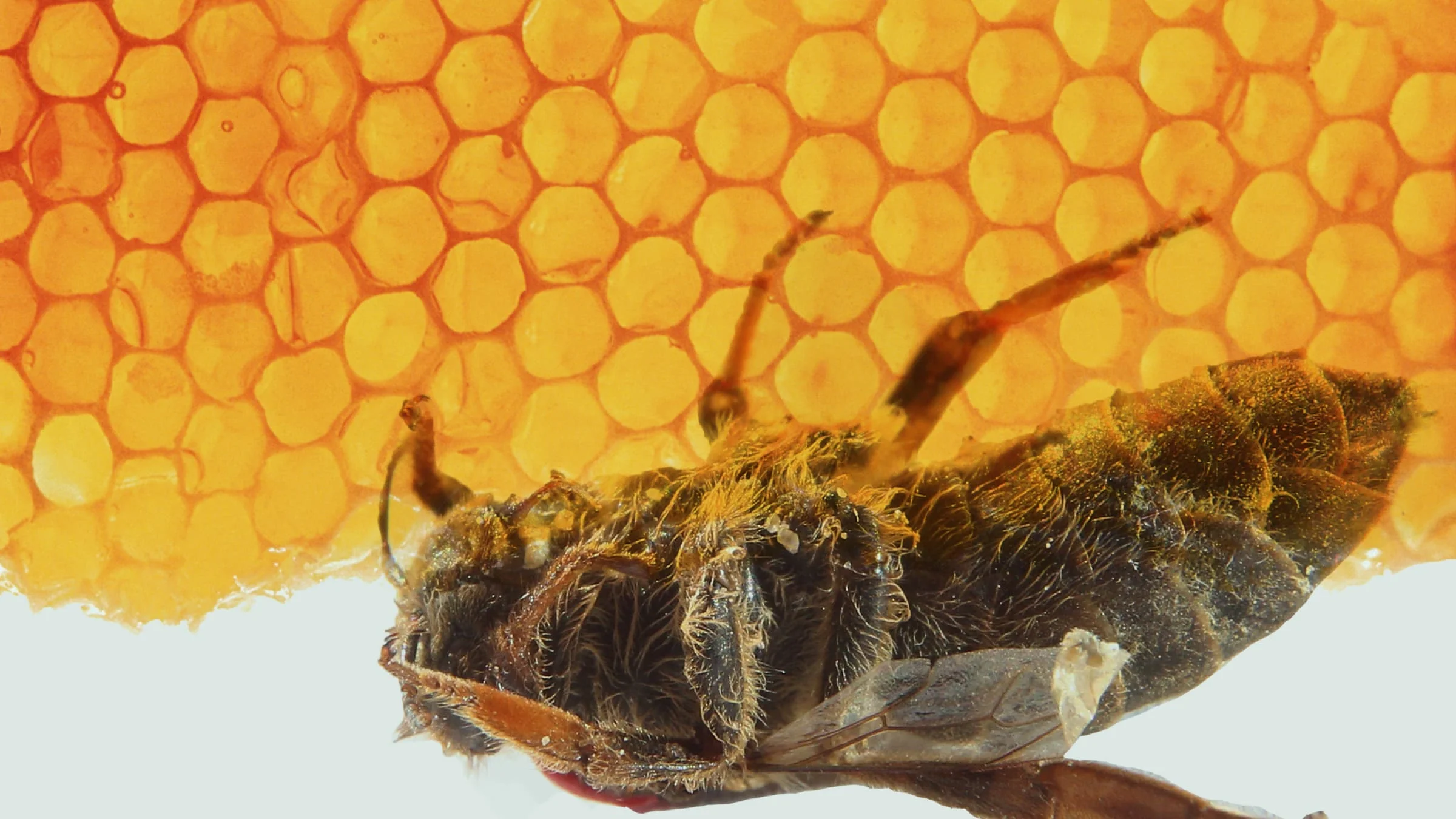
In a huge embarrassment for humankind, scientists found a bee nest made out of plastic bags in Argentina. According to the researchers, the plastic nest resulted in a lower survival rate for the bees.
Rural life is dying in Spain and much of Europe. The disappearance of bees is a reality, but also a metaphor. Many of them, like the people, are moving to the cities.
Wild bees, such as bumblebees, don't get as much love as honeybees, but they should. They play just as crucial a role in pollinating many fruits, vegetables and wildflowers, and compared to managed colonies of honeybees, they're in much greater jeopardy.
A controversial pesticide can potentially wipe out common bumblebee populations by preventing the formation of new colonies, research has shown. The neonicotinoid chemical thiamethoxam dramatically reduces egg-laying by queen bumblebees, say scientists. Predictions based on a mathematical model suggest this could result in the total collapse of local populations of the wild bees.
There are better ways of dealing with pests – especially biological controls. Modern pesticides are extremely powerful and many are long-lasting and very toxic to bees and other insects. Removing all unnecessary pesticides from the environment is probably the single most important thing we can do to save the bees.
The lead author of a major study which found that neonicotinoid pesticides harm honey bees has hit back against criticism from the chemical companies that part-funded the work.
Honeybees are among the most fruitful and amazing creatures. Though their brains are fairly small, they engage in a complicated geometric “waggle dance” to communicate the location of food sources to members of their hive. As pollinators, they play an indispensable role in sustaining crop production and the food chain.
Conservationists have been warning about the negative impact pesticides are having on bees for years and have urged people to help them and other pollinators out by not using them in their gardens. Unfortunately, in our effort to help, we’ve actually been unwittingly contributing to the problem by buying flowering plants and trees that are pre-treated with them.
When it comes to protecting bees in the US, Minnesota is way ahead of all the other states. Last week, Governor Mark Dayton ordered the implementation of a range of protections that are intended to protect the lives of bees.
Bees and other pollinators are the backbone of our food system — essential for nutritious crops such as apples, almonds and blueberries. The portion of our food supply dependent on pollinators has grown by 300 percent in the last 50 years and $577 billion of annual global food production relies on direct contributions by pollinators. However, pollinators are dying at an alarming and unsustainable rate.
Transformative changes are needed in our food, agriculture and trade systems in order to increase diversity on farms, reduce our use of fertilizer and other inputs, support small-scale farmers and create strong local food systems.
Bayer asked EPA officials to allow clothianidin on the market—before tests on the pesticide’s environmental impact had been completed. The EPA agreed. And thus began another chapter in the EPA’s sad history of protecting not the environment, but corporate interests.
A senior scientist at the U.S. Department of Agriculture filed a whistleblower complaint on Wednesday accusing the federal agency of suppressing research findings that could call into question the use of a popular pesticide class that is a revenue powerhouse for the agrichemical industry.
Environmentalists, beekeepers, farmworkers, farmers, fisheries, and food safety advocates sent a letter to the USDA Inspector General and the co-chairs of the White House Task Force on Pollinator Health today, urging an investigation into recent reports that USDA scientists are being harassed and their research is being censored or suppressed, especially research related to neonicotinoid insecticides -- a leading driver of bee declines globally. -
Agency Scientific Integrity Policy Riddled with Gags, Gaps and Loopholes
Toxic Agriculture and the Poisoning of Soils, Human Health and the Environment
If you’ve been waiting to finally see Monsanto – one of the most hated companies in the world – to pay for its ecocide, knowing harm of human life, and devastation of our pollinators, then you won’t have to wait much longer.
While Germany's Bayer CropScience spokespeople maintain that their pesticides, Calypso and Lizetan formulations, are not toxic to bees, Friends of the Earth Germany (BUND) says that just the opposite is true. BUND feels that the products, which contain the neonicotinoid thiacloprid, are harmful to bees and, as such, has been involved in public awareness efforts.
What do almond trees have to do with honeybees? It turns out that when you grow almond trees in vast monocrops, pollination from wild insects doesn't do the trick. Each spring, it takes 1.6 million honeybee hives to pollinate the crop—about a million of which must be trucked in from out of state. Altogether, the crop requires the presence of a jaw-dropping 60 percent of the managed honeybees in the entire country, the US Department of Agriculture reports.
New Report Charges EPA Ignored Staff Warnings, Approved Widespread Use of Dangerous Pesticides
Pesticides & The Perfect Crime: In The widespread bee die-offs, bees often just vanish. One Beekeeper calls it the Perfect Crime -- no bodies, no murder weapon, no bees. What's happening to the bees?
Home Depot and Lowe's are under fire for selling pesticides that some believe are partly to blame for killing billions of honeybees.

























